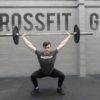Fueling the body has a direct affect on your training
Fuel The Body
How we choose to fuel our body has a direct affect on our training and dictates how likely we are to achieve our goals. Nutrition and lifestyle choices differ for every client, but there are certain factors which are the same for everyone. Firstly, we need adequate levels of carbohydrate (CHO) to ensure that our body is able to restore itself and maximise its glycogen levels. Carbohydrate is the major fuel source our bodies use when training, but we also need other food groups to ensure that we are operating on all cylinders; protein is the building block of muscle tissue, and fats are essential for the absorption of fat-soluble vitamins. Protein also balances the hormones which in turn helps to regulate the body’s chemical processes which control growth, the immune system and reproduction. Eating protein-rich foods also helps you to pack in double the amount of calories which make them a great source of healthy energy for training.
The ratios and amounts of these three essential food groups varies for each individual, depending on your goals. For example, Crossfit athletes frequently work at high intensity levels which means that carbohydrates need to feature strongly in their diet to aid recovery and develop ultimate performance. A weightlifter also needs good levels of CHO, but specific levels of protein (based on bodyweight) will be essential for the muscles to be able to recover and adapt (ie- grow!). Long endurance athletes will need large levels of CHO also, but fats will be important to them to help them excel. Via smart programming and careful guidance, our coaches can actually help you increase the body’s efficiency at using fat as a dominant fuel!
Aside from nutrition, there are other lifestyle factors play a huge role in aiding recovery – the most important one of these is sleep. After a strenuous personal training session or long day at work, sleep is the most effective time for our bodies to recover. The body sleeps in 1.5 hour cycles and current guidance suggests that we need at least 5 of these a night ( approximately 7 hours sleep), and even more benefits can be seen with 9+ hours sleep a night!
But how does sleep help? When the brain switches off it releases a hormone which aids protein synthesis and recovery of muscle tissue. During sleep, anti-inflammatory hormones are also active which can aid joint health. Sleep is also a time for ‘logging’ movement patterns in the brain (eg new training movements). Getting adequate sleep also boosts your mental capacity, improves mood and leaves you feeling rested, more focused and more productive.
Quality of sleep can be adversely affected by influences such as poor diets, high stress, alcohol consumption and too much caffeine to name but a few. Controlling and focusing on these influences with the guidance of your coach can increase your sleep, improve the quality of your recovery and ultimately, improve your performance!




